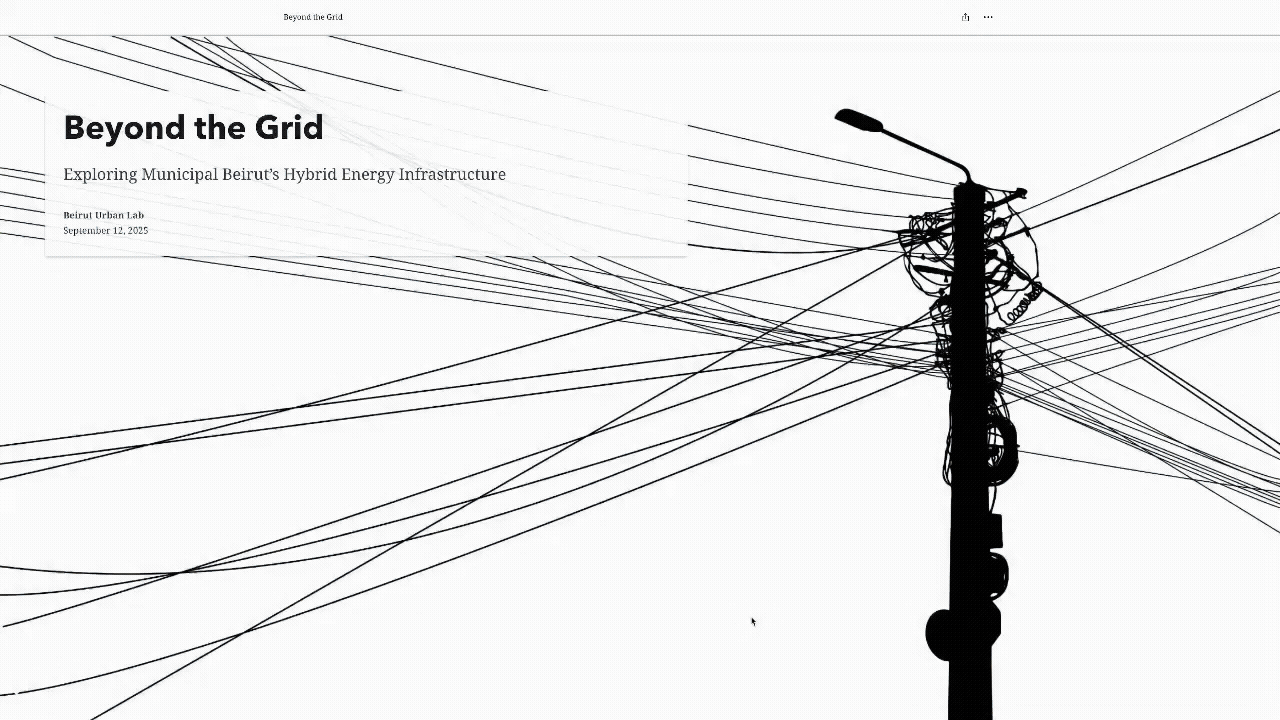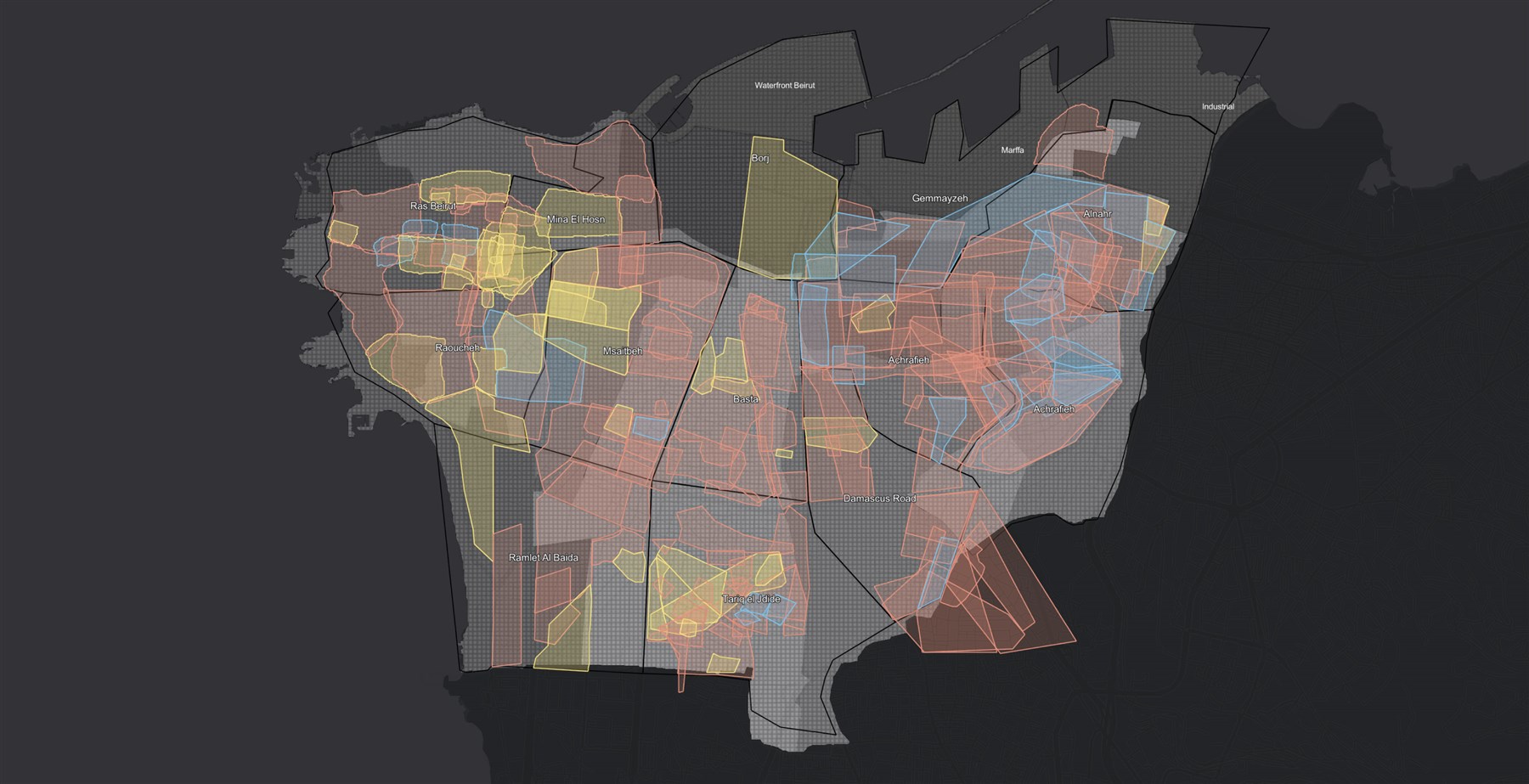Beyond the Grid: Exploring Municipal Beirut’s Hybrid Energy Infrastructure

In Beirut, electricity is not delivered. It is secured. It comes from generators hidden in basements, from solar panels on rooftops, and from wires strung across buildings and connected to noisy, polluting generators in the streets. Almost every household is connected to at least two sources of energy to secure its daily needs, often more. This hybridized service provision may reflect the resourceful and inventiveness of city-dwellers, but it also betrays fragile and deeply unequal models of energy distribution.
Neighborhood generators are the most common form of electricity provision in the city. These generators are run by private (informal) operators who divide the city into territories of supply. Although theoretically illegal, since the Lebanese state holds a monopoly over electricity through Électricité du Liban (EDL), these providers have become the backbone of daily provision for the city’s residents.

